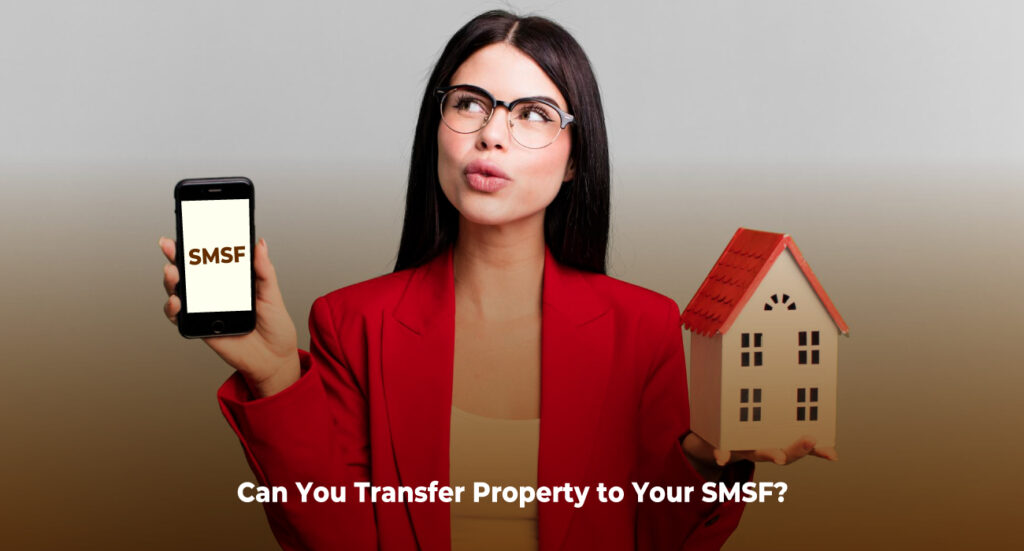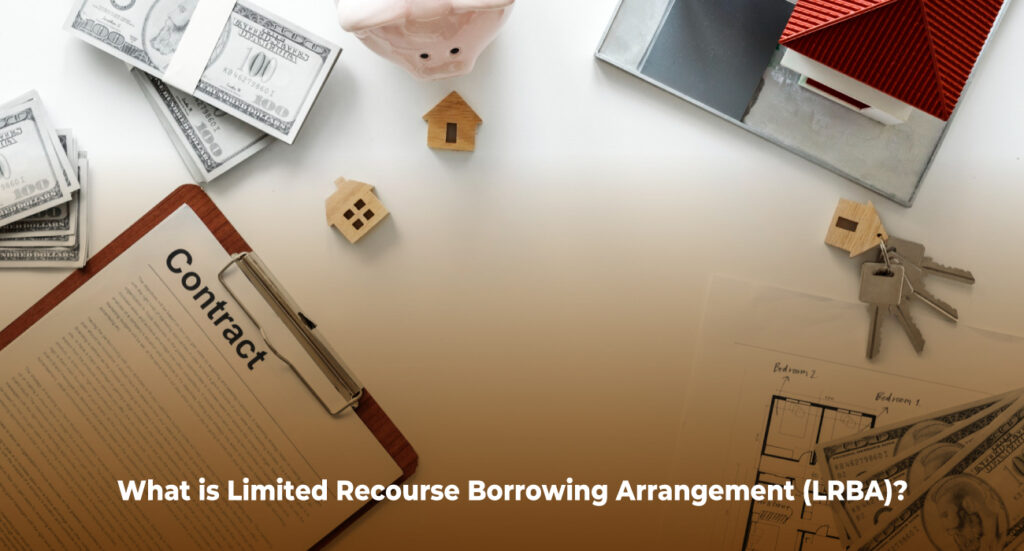7 Costly Property Investment Mistakes to Avoid in Your SMSF
So, you’ve established your Self-Managed Super Fund (SMSF), just like millions of Australians, and you’re ready to take control of your retirement investments. When the Limited Recourse Borrowing Arrangement (LRBA) was introduced, many people set up Self-Managed Super Funds (SMSFs) mainly to invest in property. Today, SMSFs own more than $140 billion worth of residential and commercial properties across Australia. One of the biggest advantages of an SMSF is that it allows members to use their super savings to buy property—even with a loan. One of the most common strategies SMSF trustees consider is purchasing an investment property. However, with so many ideas running through your mind, it’s natural to wonder what’s actually compliant and what could land you in trouble with the ATO.
At Investax, we frequently receive questions from clients and prospective clients about what an SMSF can and cannot do when it comes to property investment. Understanding the rules around SMSF property investment is crucial to ensuring compliance while maximising the benefits of your fund. In this article, we’ll address these questions and break down what you need to consider before making a property purchase through your SMSF in 2025.

1. Can You Transfer Property to Your SMSF?
The answer is yes—but only if you’re transferring a commercial property. However, if you’re thinking of transferring a residential property, the answer is a firm no.
I know what you’re thinking: That sounds ridiculous! Why is one allowed but not the other? The truth is, that’s just the rule—whether it makes sense or not. Rather than questioning why, let’s focus on what you need to know to stay compliant.
The rule clearly states that an SMSF cannot acquire a residential property from a related party. But who exactly counts as a “related party”?
A related party includes:
- All members of your SMSF
- Associates of SMSF members, such as:
- Relatives (parents, grandparents, siblings, uncles, aunts, nephews, nieces, and direct descendants)
- Business partners, as well as their spouses and children
- Companies or trusts controlled or influenced by the member or their associates
So, if you were hoping to transfer an existing residential property you own (or one owned by a family member) into your SMSF, it’s not allowed. On the other hand, commercial properties—like an office or a warehouse—can be transferred under certain conditions.

2. Can You Lend Money to Your SMSF Without an LRBA?
The short answer is a big NO. If you want to put a large sum of money into your Self-Managed Super Fund (SMSF), you can only do it in two ways:
- As a non-concessional contribution (which is subject to contribution caps).
- Through a Limited Recourse Borrowing Arrangement (LRBA) when purchasing an investment property.
Even if it’s your own personal money, you can’t just transfer funds into your SMSF to buy a property unless it follows the correct process.

3. What is Limited Recourse Borrowing Arrangement (LRBA)?
When you borrow money in your SMSF to buy an investment property, the law requires you to set up a Limited Recourse Borrowing Arrangement (LRBA). This means:
- A separate Holding Trust must be created to hold the property until the loan is fully repaid.
- If you borrow from a bank, the bank will check your SMSF deed, loan documents, and trust structure to ensure everything is set up correctly.

4. Can you Take Equity Out from your SMSF property?
No, you cannot access equity from an SMSF-owned property like you would with a personal home loan.
With a regular home or investment property, you can borrow against the increased value of your property to fund another purchase. This is called tapping into equity, and it’s a common strategy for property investors outside of super.
However, SMSFs follow different rules. Once a property is inside your SMSF, it cannot be used as security for another loan. This means:
- You can’t refinance your SMSF property to access additional funds.
- You can’t draw out equity to buy another property within the SMSF.
- You can’t use an existing SMSF property as collateral for a new loan.
If your SMSF wants to acquire another property, the fund needs to have enough cash available or enter into a new Limited Recourse Borrowing Arrangement (LRBA)—but only if the fund meets strict borrowing conditions.
This is an important rule to keep in mind when planning your SMSF property investment strategy. If you’re unsure about your options, always seek expert advice before making a move.

5. Can You Buy a Holiday Home Through Your SMSF and Stay There Occasionally?
No, you can’t.
Your SMSF cannot buy a holiday home for personal use, even if you only plan to stay there for a single day. The rules are very strict—you and your family cannot use the property in any way, no matter how occasional or minimal it may be.
Why? Because SMSF investments must be kept at arm’s length from members and their associates. This means:
- You can’t live in the property, even temporarily.
- Your family or friends can’t stay there, even if they pay rent.
- It must be used solely for investment purposes, such as renting it out to unrelated tenants at market rates.
If your SMSF breaches this rule, your fund could lose its tax benefits, face penalties, or even be deemed non-compliant.
So, while buying a holiday home through your SMSF might sound like a great idea, it’s strictly for investment only—not for personal getaways. If you want a holiday home you can use, you’ll need to buy it outside of your SMSF.

6. Can You Undertake Major Renovations or Developments Within Your SMSF?
✅ Yes, but only under certain conditions.
❌ No, if your property is under a Limited Recourse Borrowing Arrangement (LRBA).
If your SMSF property is not under an LRBA, you can carry out major renovations or even develop the property without restrictions—provided it aligns with your SMSF’s investment strategy and complies with superannuation laws.
If your SMSF property is under an LRBA, your options are very limited. You can do minor renovations, such as repainting, replacing carpets, or small repairs. However, you cannot:
- Completely remodel the kitchen or bathroom.
- Add new rooms or alter the structure significantly.
- Subdivide the land or undertake a knockdown rebuild.
Why These Restrictions?
Properties purchased under an LRBA must remain fundamentally the same asset throughout the loan term. Any significant change—like major renovations, developments, or changing the property’s structure—means the property is no longer the same asset that was originally acquired.
I know what you’re thinking: That sounds ridiculous! Why can’t I renovate if I’m spending my own money? The reality is, these are the rules, and the focus should be on staying compliant rather than questioning the logic behind them.
If you’re considering renovations or property development within your SMSF, seek expert advice first to ensure you don’t accidentally breach superannuation laws and risk penalties.

7. Can Your SMSF Lease Commercial Property to Your Own Business?
One of the advantages of a Self-Managed Super Fund (SMSF) is that it can own commercial property and lease it to a related party, including a business owned by an SMSF member. That’s why many business owners choose to purchase their commercial premises through their SMSF—it allows them to build wealth within their super while securing a space for their business.
However, this must be done correctly to stay compliant. The lease agreement must be:
✅ At market rates – The rent charged must reflect what a third party would pay for a similar property.
✅ Paid in full and on time – Just like any other commercial lease, rent payments must be made consistently without delays or discounts.
✅ At arm’s length – The agreement must be genuine, without any personal benefits, influence, or special treatment.
So, while leasing commercial property to your own business through your SMSF can be a smart move, it’s important to do it the right way—keeping everything fair, transparent, and at market value to stay on the right side of the regulations.
Conclusion
Investing in property through your SMSF can be a powerful wealth-building strategy, but only if done correctly and compliantly. The rules are complex, and even small mistakes can lead to costly consequences.
2025 is the year to take control and make informed decisions—and that starts with choosing the right partners for your investment journey. At Investax, our team of SMSF and property tax specialists can guide you through the process, helping you avoid pitfalls, maximise tax benefits, and ensure full compliance.
Reference
ATO – Acquiring Asset From Related Party





